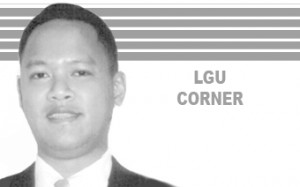 Since the elections are just a few months away, it is very important that our people should be vigilant against the use of public funds for private purposes, specifically to advance the private interests of incumbents who are running for public office.
Since the elections are just a few months away, it is very important that our people should be vigilant against the use of public funds for private purposes, specifically to advance the private interests of incumbents who are running for public office.
The matter of using public funds to advance an incumbents political interests is a perennial problem during election time.
This is because it cannot be avoided that public funds will have to be used for for private purposes, which is inherently unconstitutional and illegal, specifically under the local government code.
The local government code specifically provides that public funds shall not be used for private purposes.
This principle traces its roots to the basic concept in a democracy that public funds are to be used for the benefit of the general welfare and not for the benefit of a few individuals.
In relation to the issue of public funds used for private purposes, I re-call a case on this regard: WenceslaoPascual v Secretary of Public Works (G.R. L-10405, decided Dec. 29, 1960).
In the 1950’s, Gov. WenceslaoPascual of Rizal province filed a case questioning the appropriation of P85,000 to be used purportedly for the construction repair extension and expansion of “feeder road terminals†in Pasig.
According to Gov. Pascual, these so-called feeder roads were yet planned subdivision roads that were not yet constructed.
Worse, the sites of these feeder roads were located within a private subdivision owned by a Senator, Jose C. Zulueta, which feeder roads do not connect to a government road or highway.
But just prior to the approval of this appropriation law, Senator Zulueta wrote the municipal council, offering to donate the projected feeder roads to the municipality of Pasig.
The charge
The charge of Gov. Pascual was that inasmuch as the projected feeder roads in question were private property at the time of the passage and approval of the appropriations law, such appropriation of P85,000.00 for the construction, reconstruction, repair, extension and improvement of said projected feeder roads, was “illegal.
In short, Gov. Pascual charged that public funds were appropriated for a private purpose, which is illegal and unconstitutional.
The case was eventually elevated to the Supreme Court.
The issue brought before the court was whether or not the appropriation of P85,000 to construct a projected feeder road upon a location that was privately owned was legal or illegal.
The Supreme Court ruled the particular appropriation was illegal and, therefore void.
In this case, the Supreme Court laid down the rules and standards in determining whether a certain appropriation can be considered for public or private use.
In determining whether an appropriation is for public or private use, consequently it will be determined whether an appropriation is legal or illegal.
What is the test, according to the court?
The test of the constitutionality of a statute requiring the use of public funds is whether the statute is designed to promote the public interests, as opposed to the furtherance of the advantage of individuals, although each advantage to individuals might incidentally serve the public
According to the Supreme Court, inasmuch as the land on which the projected feeder roads were to be constructed belonged then to respondent Zulueta, the result is that said appropriation sought a private purpose, and, hence, was void.
WenceslaoPascual v Secretary is a case commonly discussed to find out, and to learn what is public purpose (legal) and private purpose (illegal).
Let us be vigilant as ordinary citizens, specially as the nation ushers the coming electoral exercise.
Ensure that the appropriations in the annual budget ordinance are used properly and legally. (By Atty. Jay I. Dejaresco)
